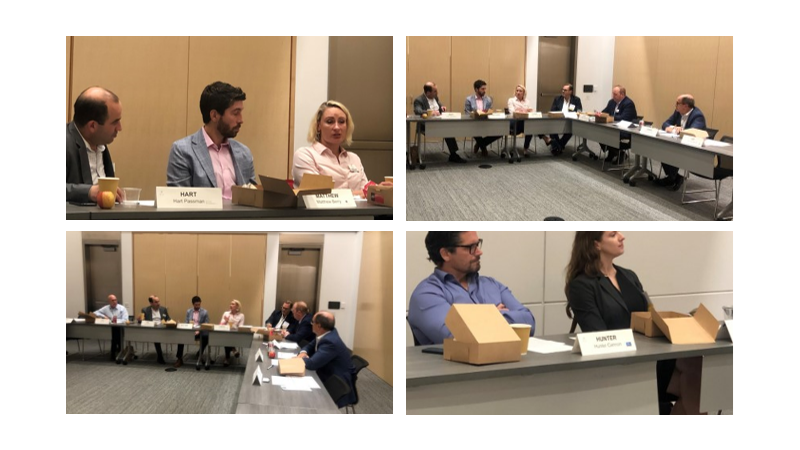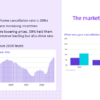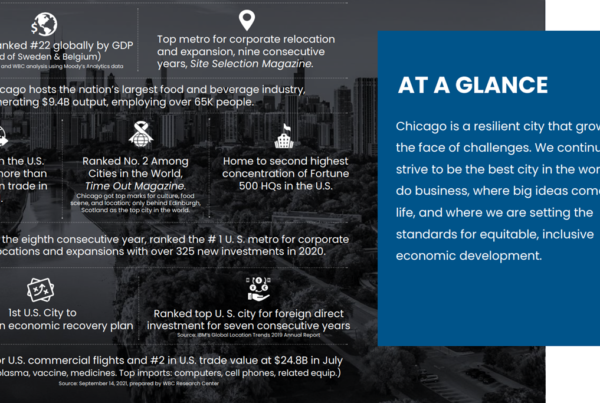Key Take Aways from Chicago’s September 2022 Mastermind Group Meeting!
- Dan Brennan, Laurie & Brennan, LLP: Most of their work has been dispute related outside of Chicago. Representing a company out in Berkley that manufactures meat substitute and are expanding and plan to build a plant as they have an infusion of capital. Trends he is seeing is most are building elsewhere vs. Chicago. Dan also noted that the infusion of PLAs has been having an impact with the unions (e.g., the Local 150) but the PLAs minimize the number of arguments about who is doing what work.
- Rick Rembusch: From a data center standpoint, the interest rates will impact everyone and have a negative impact and are the biggest issue from a macroeconomics point. In the hospitality arena, valuation is the hot topic. Hotels were devalued during the pandemic, but they are coming back again.
- Lauren Zangl, ECS Midwest LLC: Summer is usually slow for Lauren, but August was incredibly slow however since Labor Day sales have doubled (acquisitions, not a lot of new developments) and a lot in retail. Air quality and green initiatives continue to be a major discussion and trend as projects evolve.
- Matt Berry, The John Buck Company: On the multifamily side, projects have stabilized, and they are no longer burning off pandemic challenges. Lease rates are looking good in Chicago. Typical August swoon has occurred so September numbers should be better. Rent growth is strong. Operating costs are not spiking with inflation as one might expect. However, interest rate growth out-paces everything and has had a negative impact on their valuations and dispositions. On the development side, debt is getting away and it is hard to get financing that makes sense, but the alternative is to not have projects (a catch-22). The alternative is a slow and steady negotiation with the banks at the end of the day.
- Hart Passman, Elrod Friedman LLP: Have heard people are not building in Chicago, lenders do not want to lend in Chicago, developers are looking elsewhere… but development is happening, and a lot of the development is happening by very local people (e.g., a developer in Highland Park). A lot of their municipal clients are developing and doing projects in Illinois.
- Lee Utke, Madison Marquette: Have been busy buying vacant single tenant retail sites and repurposing them. Closed on 144 sites as of August 16th. They keep thinking the economics will change for the different users they talk to, but there is a pent-up demand for quality sites. The $2-5M per site still have a lot of people who want to invest in that market, so the cap rates have not changed dramatically compared to where the interest rates are; it is a good market to be in (speed is critical). Quick Service Restaurants (QSRs) are a big part of their success story.
- Hunter Cannon, Colliers International: Picked up a medical use portfolio in Crystal Lake, however the single tenant medical office space is slowing down and trying to figure out the pricing for the single tenant medical market space.
- Richard Knorr, Richard Knorr International Ltd.: RKI’s expertise is in international resort developments/destination properties (e.g., hotels, golf courses, condominiums, and mixed-use vacation homes). Fortunately for his line of business during economic downturns, the luxury segment still bodes very well as boutique hotel clients are not sacrificing their vacations and they are still maintaining their vacation properties so a minimal drop off in sales. The debt-to-equity ratio does change but in the Caribbean area they are more conservatively financed. Seeing a lot more all-cash deals so buyers and investors do not have to deal with senior lenders and the challenges they present. Some of the other trends they are seeing are ESG related; green bond financing available and carbon footprints are big topics for new projects and properties. In the international resort arena, a lot of the properties are pandemic obsolete because the properties include a lot of inside and outside space allowing them to survive during the pandemic. Also seeing a growing trend towards 20-minute walkable communities where everything is outside your front door, so more properties are incorporating mixed-use options vs. just a hotel property. Plus, the growth of “digital nomads” is growing. Workers are picking environments where they want to work and live and is an annexation to the mixed-use resort model they are developing.
- Sara Disney Haufe, Sam Schwartz: Two overarching transportation related projects are happening: Locally, they are working on the connect community’s ordinance in Chicago (an extension of the ETOE work in Chicago has been developing) to make it more meaningful as it relates to the transportation stations (both rail and busses). The goal is to improve transportation in neighborhoods for people to get to/from work. Outside of Chicago, there is a lot of federal grant money that was released. Munster, IN recently received $17M to improve one of their main downtown streets and include a new south shoreline. They recognize that connected communities and having a travel station will pay dividends. Also, development often follows where improved transportation initiatives are being launched.






Recent Comments